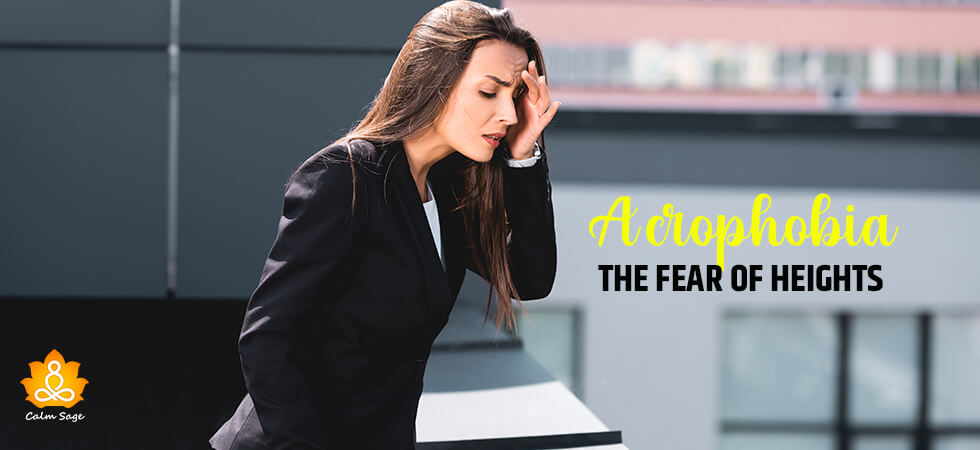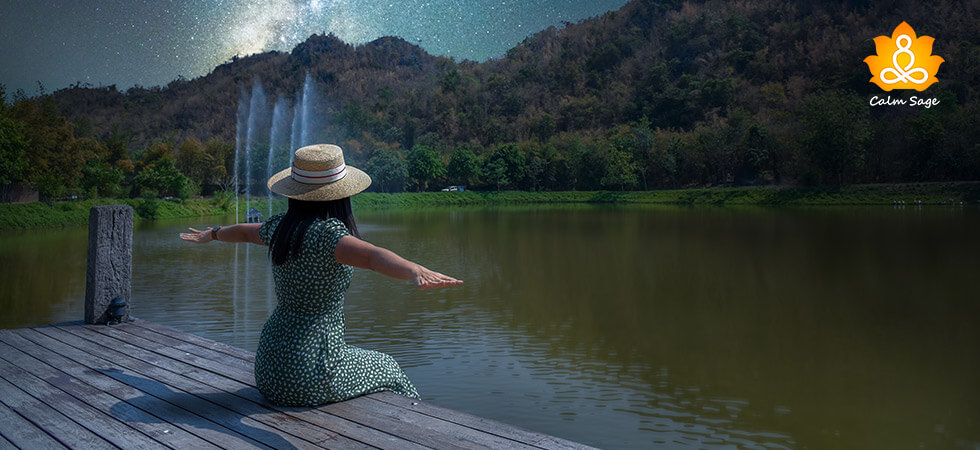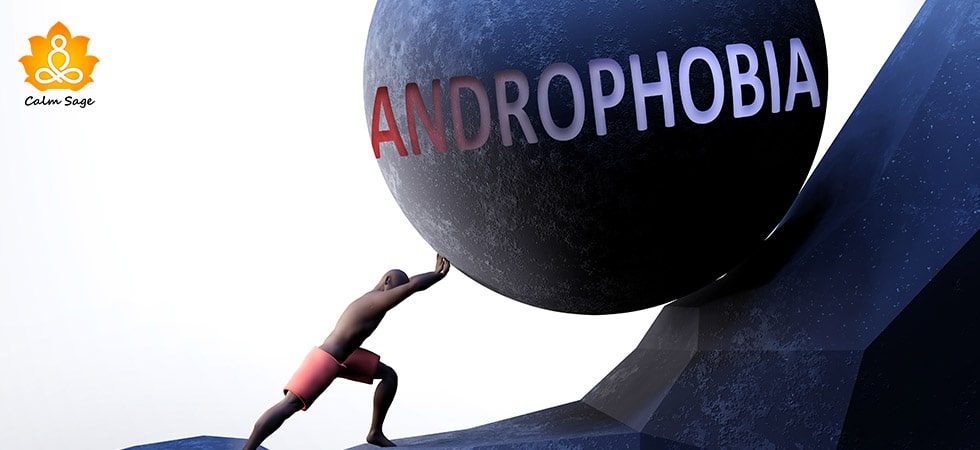Acrophobia Or The Fear Of Heights: Definition, Triggers, Causes, & How To Cope

Acrophobia can be described as an intense fear of heights that causes sudden panic and anxiety in people who struggle with this phobia. Acrophobia might be one of the most common phobias, according to researchers.
While it’s normal to feel discomfort when in high places like standing over a cliff or at the top of a skyscraper, however, these feelings may not cause sudden panic or make one avoid heights completely.
People with acrophobia might feel fear and anxiety even if they think of or see a picture of a mountain or cliff. This extreme distress caused by this fear of heights is strong enough to affect one’s daily life.
In this blog, let’s take a look at what acrophobia is, the symptoms, its triggers, what causes this fear, and how you can overcome the fear of heights.
What Is Acrophobia?
In the DSM-5, acrophobia is categorized under “anxiety disorders” and can be considered a type of specific phobia. Acrophobia or the fear of heights is an extreme fear that can cause a person to avoid situations where they might be exposed to heights.
Specific phobias are when you experience sudden and extreme fear or anxiety when exposed to a specific experience, situation, or object.
What are the Acrophobia Symptoms?
If you’re struggling with acrophobia, you might experience a range of symptoms in different situations. Acrophobia causes sudden anxiety and in the DSM-5, acrophobia symptoms include:
- Extreme fear or anxiety
- Shallow breathing
- Shaking or trembling
- Dry mouth
- Sweating
- Numbness
- Heart palpitations
- Chest pains
- Derealization or depersonalization
- Fear of dying
- Dizziness or vertigo
Triggers to acrophobia differ from person to person, however, common triggers of acrophobia might include:
- Skyscrapers
- Cliffs
- Flying in an airplane
- Elevators
- Escalators
- Staircases
- Looking down from a top story window/balcony
- Bridges
- Overpasses
General Fear v/s Fear Of Heights
Acrophobia is the fear of heights but other specific phobias can cause a fear of high places such as:
- Aerophobia: The fear of flying
- Cremnophobia: The fear of cliffs or mountains
- Bathmophobia: The fear of slopes
- Gephyrophobia: The fear of crossing a bridge
For instance, if you’re afraid of standing on a cliff, but not afraid of flying in an airplane, then you can be diagnosed with Cremnophobia. If you’re afraid of flying on an airplane, afraid of cliffs, afraid of crossing a bridge, then you may be diagnosed with acrophobia.
Acrophobia can be diagnosed by a psychiatrist or mental health professional. It is recommended that you speak to a professional for an accurate diagnosis.
Potential Causes Of Acrophobia
Like other phobias, there are many potential reasons why someone may develop a fear of heights. Other than genetics and other environmental factors, some potential causes of acrophobia can be:
1. Past Experiences: If you’ve had a bad experience previously related to heights, then it’s possible to develop a fear of heights.
2. Distance Perception: Some people with acrophobia might have an asymmetrical distance perception that may contribute to their fear.
3. Vestibular Disorders: Our vestibular system controls our sense of balance so people with vestibular disorders may experience impaired balance that may put them at a greater risk of falling.
Can Acrophobia Be Treated?
Yes! There are numerous treatment options available to treat acrophobia or the fear of heights. Some might include vestibular physical therapy or VR (virtual reality) therapy.
Exposure therapy can also help in treating specific phobias such as the fear of heights. Exposure therapy, as the name suggests, exposes a person with a phobia to their fear either gradually or at once (depending on the person’s fear).
For example:
A licensed and trained therapist would expose a person with acrophobia to heights by asking them to look out a second or third-story balcony/window from a few feet away. This way, the therapist will gradually expose the client to the object of their fear.
This kind of therapy is done in a safe environment and should be performed by a professional only.
How To Cope With The Fear Of Heights?
Acrophobia or the fear of heights can severely impact your daily life. Not only the fear causes feelings of panic and anxiety but it can also limit your experience that can be distressing.
For example: not being able to hold a job because of the altitude of your workplace, or refusing to enter a restaurant located in high-rise buildings, etc.
Don’t fret! There’s a way you can cope with your fear and enjoy your life. If your fear’s not too severe, you can practice deep breathing, yoga, visualization exercises, or chant mantras to help your panic recede.
You can also try to control your anxiety response by getting regular physical exercise, reducing caffeine intake, eating well, and using healthy coping mechanisms to cope with your fear.
If your fear is too severe, then it is recommended you speak to a professional mental health provider for a diagnosis and treatment.
Writer’s Thoughts
Acrophobia can be extremely uncomfortable and distressing to deal with but remember you’re not alone in your struggles. The fear of heights is one of the most common phobias in the world and keep in mind that avoiding the phobia and its effects is not helpful.
If your fear of heights is limiting your life experiences, then it is suggested you speak to a professional. There is help and treatment available to help you overcome acrophobia or the fear of heights.
Consult with a mental health professional for an accurate diagnosis and the right treatment plan for you.
For more, you can write to us at info@calmsage.com or DM us on social media. If you found this article on acrophobia, the fear of heights, helpful, do let us know in the comments below!
You are not alone!
Take Care.




















